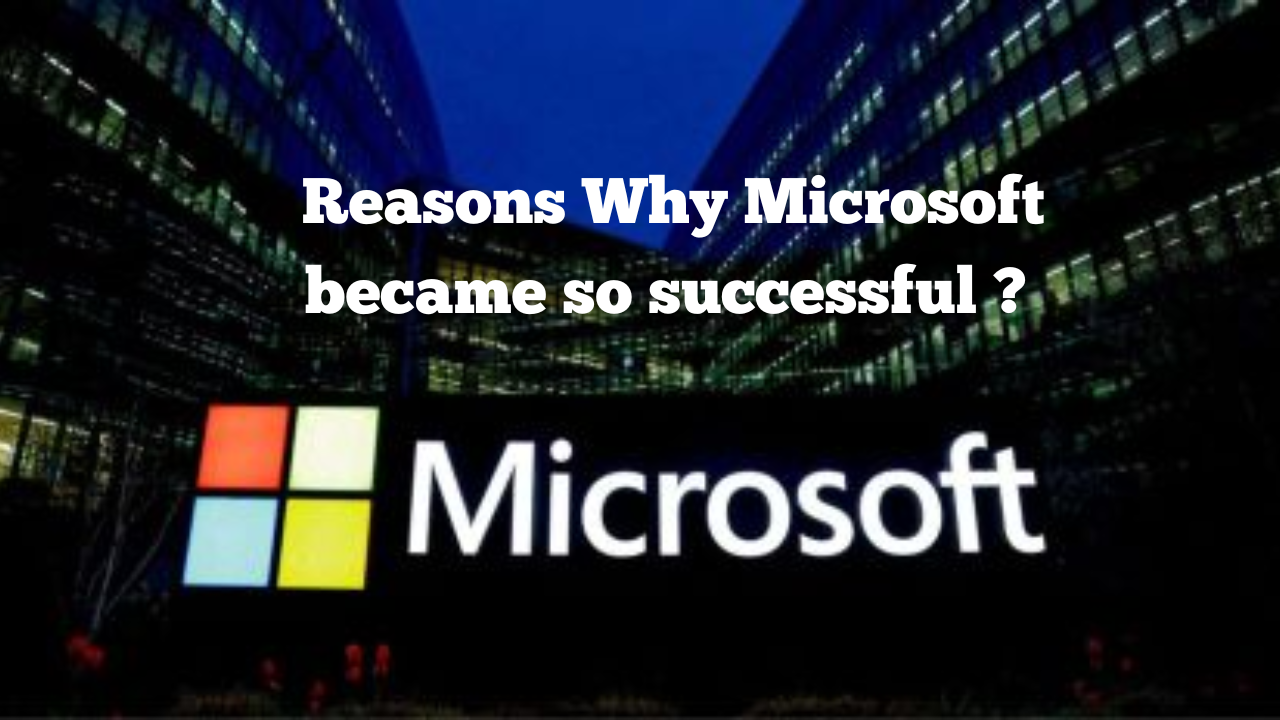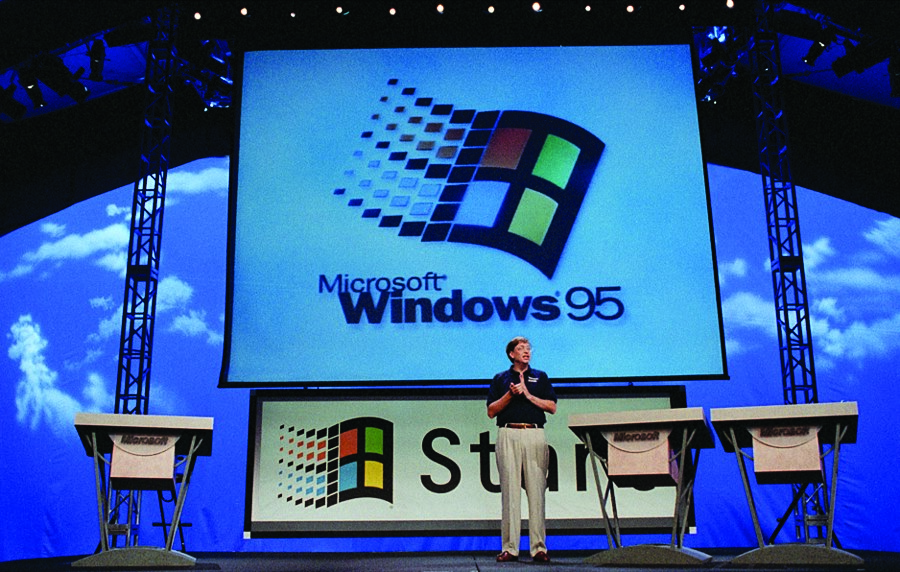Reasons Why Microsoft became so successful ?
 Aakashi Jaiswal
Aakashi Jaiswal
The Microsoft Success Story: How a Tech Giant Transformed the World
Microsoft isn't just a company - it's a technological phenomenon that reshaped how the entire world uses computers and software. From its humble beginnings in a small garage to becoming one of the most valuable companies on the planet, Microsoft's journey is a testament to vision, innovation, and relentless strategy.
The Early Days: Bill Gates' Brilliant Vision

Let's rewind to 1975. A young Bill Gates and his friend Paul Allen saw something that most people couldn't - the immense potential of personal computers. While others saw these machines as expensive curiosities, Gates and Allen envisioned a future where computers would be in every home and office.
Their first major breakthrough came with MS-DOS, an operating system that became the backbone of early personal computing. By licensing this software to IBM and other computer manufacturers, Microsoft created a brilliant business model that would become its trademark: creating platform software that others would use.
Strategic Brilliance: Windows Changes Everything

The real game-changer was Windows. Released in 1985, Windows transformed complicated computer interactions into something intuitive and user-friendly. Instead of complex text commands, users could now click, drag, and interact with graphics. This wasn't just an upgrade - it was a revolution.
Windows became so ubiquitous that it essentially created a global standard for personal computing. Businesses, schools, and homes around the world started using Windows, making Microsoft the default operating system for millions.
Business Model: Ecosystem and Platform Strategy
Microsoft mastered something truly remarkable - creating an ecosystem where their products worked seamlessly together. Microsoft Office, with Word, Excel, and PowerPoint, became the standard for professional document creation. These tools didn't just compete; they complemented each other perfectly.
By making their software work best together, Microsoft created a "lock-in" effect. Once a company or individual invested in Microsoft products, switching became complicated and expensive. This strategy ensured customer loyalty and consistent revenue streams.
Innovation Through Acquisition and Investment
Microsoft didn't just rely on internal development. They became experts at identifying promising technologies and either acquiring them or investing heavily. Some notable examples include:
-Acquiring LinkedIn for professional networking
-Buying GitHub to support developer communities
-Investing massively in cloud computing with Azure
-Purchasing Minecraft to enter the gaming market
Each acquisition wasn't just about buying a product, but about gaining strategic advantages in emerging technology markets.
Enterprise Focus: Understanding Business Needs
While many tech companies chased consumer trends, Microsoft consistently focused on enterprise solutions. They understood that businesses needed reliable, scalable software solutions. Products like Windows Server, Active Directory, and later Azure Cloud Services became critical infrastructure for companies worldwide.
This enterprise focus meant more stable, predictable revenue and deeper relationships with corporate clients who needed comprehensive technological solutions.
Adaptability: Pivoting with Technology Trends
What sets Microsoft apart is its ability to adapt. When cloud computing emerged, they didn't resist - they created Azure. When mobile became dominant, they developed mobile-friendly versions of their software. When artificial intelligence started transforming tech, Microsoft invested billions in OpenAI.
Their partnership with OpenAI and integration of AI into products like Microsoft 365 show they're not just reacting to trends, but actively shaping them.
Leadership Transitions: From Gates to Nadella
The company's success isn't just about technology, but leadership. Bill Gates' visionary early leadership set the foundation. Steve Ballmer continued the growth trajectory. But Satya Nadella's tenure has been transformative.
Nadella shifted Microsoft's culture from competitive and siloed to collaborative and innovative. He embraced open-source technologies, invested in cloud computing, and made the company more inclusive and forward-thinking.
Global Accessibility Strategy
Microsoft has consistently worked to make technology accessible. Their accessibility features in Windows, adaptive technologies for people with disabilities, and multilingual support demonstrate a commitment to inclusive technology.
Financial Strategy and Diversification
Microsoft doesn't put all its eggs in one basket. Their revenue streams include:
Software licensing
Cloud services
Enterprise solutions
Gaming (Xbox)
Professional networking tools
Hardware like Surface computers
This diversification provides stability and opportunities for growth across multiple technological domains.
The Human Touch: Corporate Responsibility
In recent years, Microsoft has also distinguished itself through corporate responsibility. Significant investments in sustainability, commitment to carbon negative goals, and substantial philanthropic efforts have enhanced their global reputation.
Lessons for Entrepreneurs
Microsoft's success offers several key lessons:
-Have a clear, long-term vision
-Create ecosystems, not just products
-Be willing to adapt and pivot
-Invest in understanding customer needs
-Think globally, not just locally
-Continuously innovate
Microsoft's success isn't a miracle - it's a result of strategic thinking, continuous innovation, and an uncanny ability to anticipate and shape technological trends. From a small startup to a global tech leader, their journey represents modern technological entrepreneurship at its finest.
The company transformed from a software provider to a comprehensive technology solution partner, proving that with the right strategy, vision, and execution, extraordinary success is possible.
Subscribe to my newsletter
Read articles from Aakashi Jaiswal directly inside your inbox. Subscribe to the newsletter, and don't miss out.
Written by

Aakashi Jaiswal
Aakashi Jaiswal
Coder | Winter of Blockchain 2024❄️ | Web-Developer | App-Developer | UI/UX | DSA | GSSoc 2024| Freelancer | Building a Startup | Helping People learn Technology | Dancer | MERN stack developer